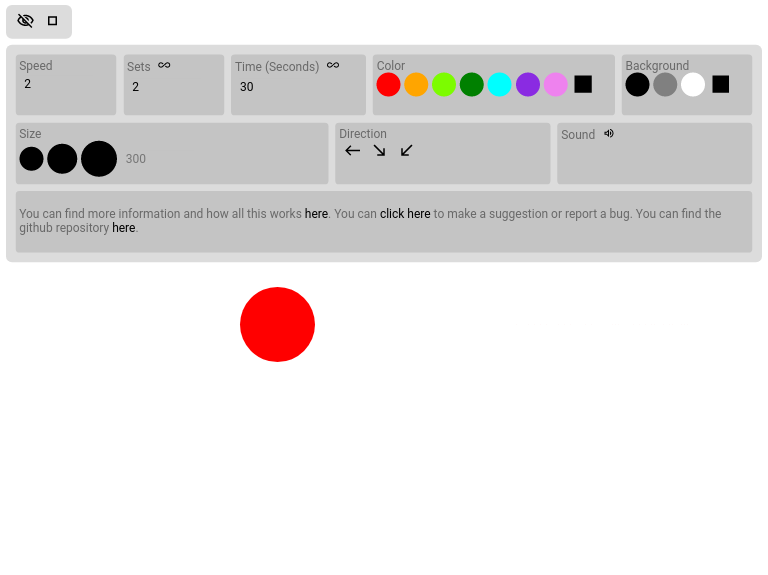Software Projects
This page is a list of a some of my favorite projects that I am currently working on.
EMDR App
This is a simple EMDR light-bar app that can be used in a variety of contexts, including in person and via screen-share(which allows it to be used with most video-conferencing apps).
I built it at the beginning of the Covid-19 pandemic to enable clinicians to work online, whilst also providing a high quality experience for patients, and a flexible tool for clinicians. It is been well loved by clinicians and used all around the world.

Accessibility technology
I am dyslexic. This has enabled me to solve problems in innovative ways. However, it has also led to me finding reading and writing more challenging than I otherwise would. To solve this problem, I try to use text-to-speech software and speech-to-text software to enable me to use my auditory skills to compensate for this. I therefore have a clear interest in trying to build the best possible accessibility tools for dyslexics. Increasingly, I have started to build a variety of different projects to try to remedy the shortcomings in current product offerings.
Deepkey
This is a very early attempt at producing a system that allows me to another completely open source speech to text solutions.
Deepkey builds on top of Mozilla’s DeepSpeech, which is an open source speech to text engine. It is a neural network based approach. Unfortunately, Mozilla does not provide any practical means to enable its use as an accessibility tool. The project itself only converts speech into plaintext without any sense of grammar or punctuation. This is my first attempt at solving that problem.
pdfParser
Most academic material is distributed in the form of a PDF. However, this is not a format that can be readily used with text-to-speech solutions, which generally require plaintext. This app aims to solve this problem by ingesting any PDF and converting it to clean plaintext without any headers, footers or other unwanted features of the PDF format.
 Github
Github